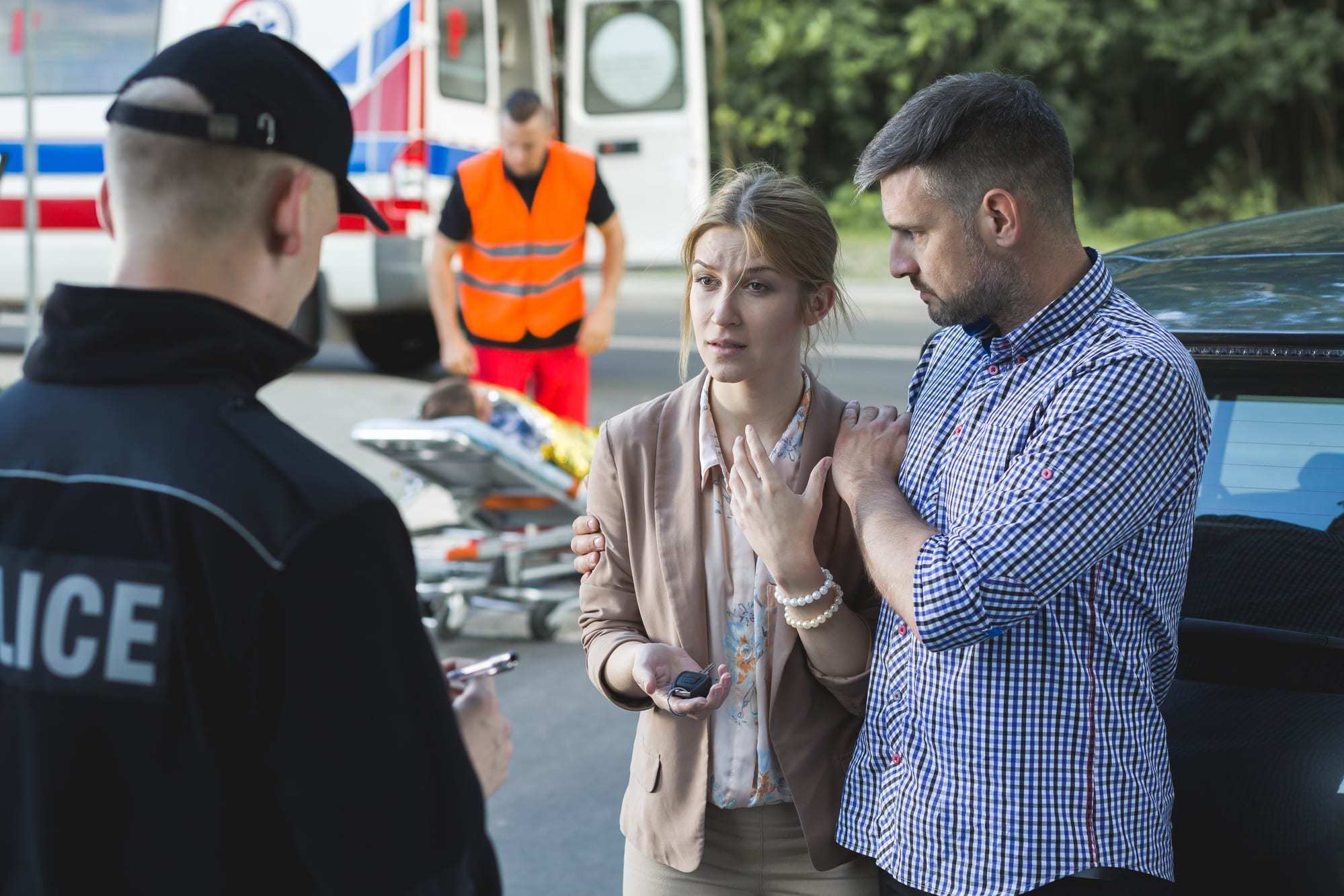Most of us know how to react if we’re involved in a collision, but you might be less certain about what to do if you witness a car accident. As a witness, you could play an important role in what happens next, and your perspective of the event is invaluable. Your statement may be needed by the police, the insurance companies involved, and the drivers’ attorneys. Scroll down if you’re wondering what to do if you witness a car accident.
What to Do If You Witness a Car Accident
In the period of shock that often follows witnessing a car accident, you might not know what your responsibilities are or how you should proceed. So first, pull over and take a few deep breaths. Park a safe distance away from the accident and out of traffic so that you aren’t in the way of emergency responders and police vehicles and also aren’t putting yourself in danger. Turn on your hazard lights and stay far away from the accident, especially if you suspect that it’s dangerous (if a car is on fire, for example).
Although you are not legally required to do anything after witnessing a car accident, remember that your actions could save someone’s life or ensure that the person at fault is held responsible. So if possible, we encourage you to follow these next four steps:
Call the Police
Dial 911 after you’ve pulled over to report the accident to the police. Don’t assume that somebody else has already called the police, and don’t hesitate because you’re not sure if the crash is “serious” enough. Tell the 911 dispatcher what happened and be ready to provide location information and a description of the vehicles involved.
Check the People Involved in the Accident for Injuries
While you’re on the phone with the 911 dispatcher, walk around the vehicles (if you feel safe doing so) and look for anyone who appears to be injured. If you see someone who is injured, tell the dispatcher. In addition, if you are a registered nurse, physician, or trained EMT, you can render emergency care to accident victims without facing legal liability. In Missouri, anyone certified in First Aid or CPR can also help victims without fear of liability under R.S.Mo. § 537.037.
If you’re not a trained medical professional and you don’t have First Aid or CPR certification, do not give care to an accident victim unless that person is facing imminent danger. For example, if the victim is inside a smoking vehicle that might erupt in flames, you can pull that person to safety. Similarly, if you see a person is bleeding out, you can place towels or clothing on the wounds and add pressure to slow the bleeding. Avoid moving victims who are not in imminent danger, however, as you could accidentally cause their injuries to worsen. Instead, try to make the victim as comfortable as possible while you wait for help to arrive. Tell them that help is on the way.
Avoid Confronting the Drivers
Do not get involved in a confrontation with the drivers or with other people who were involved in the accident. If the drivers are arguing, stay back. Some drivers are very angry after accidents and may lash out violently. Write down the license plate numbers and vehicle information of both vehicles, or take a quick picture with your smartphone of the vehicles’ license plates, makes, and models. Recording this information can be very important if an angry driver suddenly speeds away before the police respond to the scene. If a driver does flee the accident scene, provide any information that you have about the driver and his or her vehicle to the police.
Tell the Police What You Saw
After the police and any emergency responders arrive at the accident scene, they will check the people involved for injuries and will begin to investigate the accident. When asked, provide the police officer with your name and contact information, and tell them what you observed. Stick to the facts when you give your statement. Be honest, and do not assign blame. Instead, simply tell the officer what you observed. These are some details you may be asked about: the directions the vehicles were driving, their estimated speeds of travel before they collided, whether either driver ran a red light or stop sign, whether you saw either driver texting or talking on the phone, etc. Keep in mind that later you may be called as a witness in court or in a deposition.

